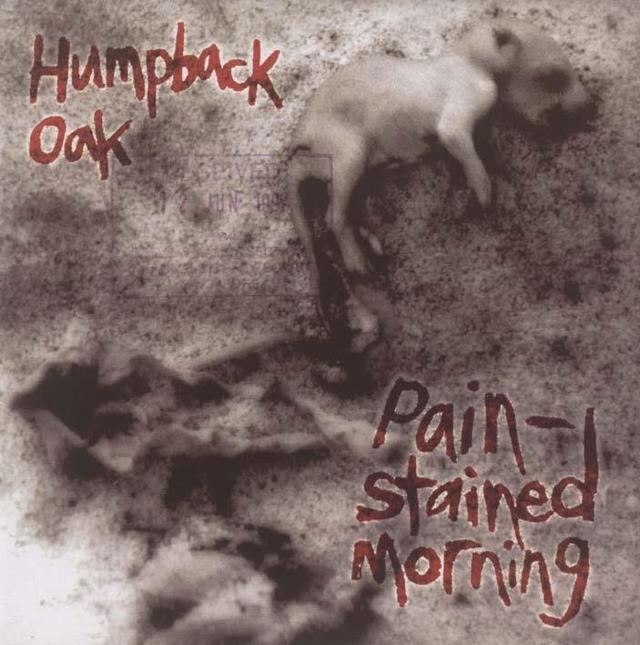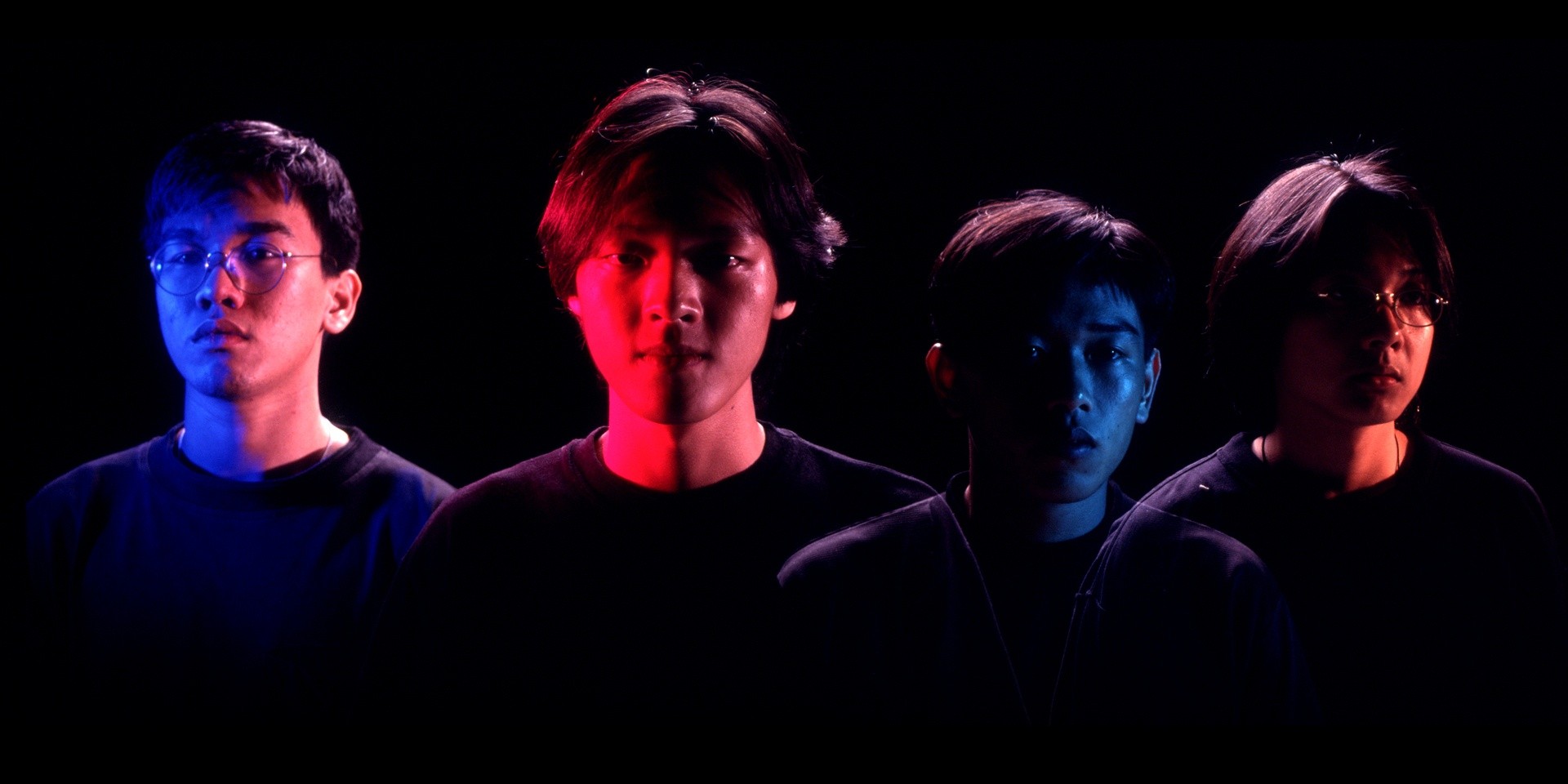Every Thursday, Bandwagon throws back to a seminal album of yesteryear for our younger readers to explore and for our older readers to reminisce. We’ll be picking out some absolutely essential records, spanning all genres and all time, and discussing their significance from a modern day perspective — whether they were immediate hits or made an impact only decades after its release.
The 90s was undoubtedly a special time in Singapore’s music history.
From an explosive wave of new, fresh bands to increased playtime on local radio stations, the late 80s to the early 90s provided a relatively fertile breeding ground for music acts in Singapore.
The 90s especially ushered in a new kind of rock band: power-pop conquerors The Oddfellows, alt-rock bands Padres and Force Vomit, who both ended up on BBC's Radio 1 Show playlist, Singapore's first local riot-grrrl punk band Psycho Sonique to hardcore pioneers and shoegaze revivalists, Stompin’ Ground and Astreal respectively.
BANDWAGON TV
Somewhere in 1988, a quartet named Humpback Oak was formed. The alternative/acoustic indie folk rock band comprised of a group of students who were juggling studies in St. Joseph’s Institution with a growing fascination with music: vocalist Leslie Low (now frontman of Singapore’s avant-rock explorers The Observatory), Vincent Chin on guitars, Daniel Wee on bass and Stanley Teo on drums.
Releasing three demo tapes that were quietly supplied to local record stores (The Mojo Sessions, The Songs Will Always Be There and Moth And Bagpipes) during their formative years, the band went on to sign with the now-defunct Pony Canyon Records shortly after, debuting with an indelible little indie rock album named Pain-Stained Morning in June 1994. The album garnered critical acclaim and a considerable amount of attention, both at home and in the region.

"Since its release, Pain-Stained Morning has had an enduring place in Singapore indie rock's history, with its gorgeously melancholic sound and painful sincerity that lamented the growing pains of adolescence that struck a deep chord, and still continues to do so. The canvas that Humpback Oak painted with dreamy, folky guitars was all at once vulnerable, flawed but also deeply relatable."
The 14-track debut is simplistic in its overall production, applying little studio trickery other than the standard glossy reverb that with almost every alt-rock album in the 90s. The recording allows the band to showcase the songs as is, providing ample space for the brooding choruses and empowering every glistening guitar riff or bellow by Vincent and Leslie.
Humpback Oak provides listeners with hefty and lingering guitar melodies that are melancholic and brooding, littered with persistent introspection. Warm, inviting guitar sounds permeate through most of the songs here. Ultimately, there are underlying layers of sadness, fear and uncertainty in most of them, channeled by Leslie's recognizable vocals. It's a potent affair, all the more groundbreaking considering there was little music like this made in Singapore back in 1994.
Take tracks like 'Finer Life', a tragically cynical song about relationships, life and loneliness as Leslie sings, “Down to the low life / Well do I like it? / No finer time to be alive” or 'Circling Square', a sincere and hopeful love song, with exquisite, gentle vocals by Leslie as sparkling acoustic guitars undercut the song's yearning lyrics.
Other standout tracks include the crisp-sounding 'Web', with its grungy bass and intertwining guitar play, bouncing off each other effortlessly, while one of the shortest tracks, 'Father Floyd' showcases a seemingly live, improvised folk performance that's a good encapsulation of the band's live prowess.
Closers like 'Crow' with its moody, swirling guitars, paced with grandiose confidence, and the rich sounds of 'Bull', with its large chanting hook, “I got something for you to say / I got something for you to say.” closes the album before a surprise little “in the moment”, an acoustic number that pops mid way through the track. The song is graceful as it gradually and delicately fades, bringing the album to a fitting end.
The band went on to record and release their follow-up efforts — the comparably cohesive and darker Ghostfather in 1997 and the experimental Side A Side B, before the band called it quits in 2001.
Since its release, Pain-Stained Morning has had an enduring place in Singapore indie rock's history with its gorgeously melancholic sound and painful sincerity that lamented the growing pains of adolescence that struck a deep chord, and still continues to do so. The canvas that Humpback Oak painted with dreamy, folky guitars was all at once vulnerable, flawed but also deeply relatable. Not many records in Singapore have had the same impact as Pain-Stained Morning since.
With their albums previously long out-of-print — fans were even willing to pay hundreds of dollars online for first print CDs — the demand was astutely met with a limited retrospective box set titled Oaksongs in 2010, collecting all of Humpback Oak’s releases and rarities that filled the void for many thirsty die-hards.
The band proudly wears its influence on their sleeves, echoing the sparse grittiness of Neil Young's intimate work and the slow-burning indie rock exhibited by Red House Painters. But the timeless confessional nature and melancholic sounds of Pain-Stained Morning has made it a landmark Singaporean release — worth discovering for the band's perceptive songwriting and emotional intelligence alone.
Pain-Stained Morning is currently unavailable for streaming, and with the limited quantity of Oaksongs, you might need to check in with local record stores for availability. We suggest Roxy Records & Trading.
If you like this, you'll also like: Leslie Low's No Such Thing As Ghosts, Red House Painters' Ocean Beach and Hanging Up The Moon's Immaterial.
Like what you read? Show our writer some love!
-
